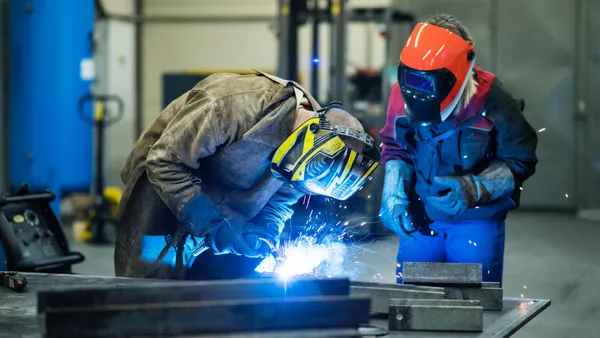Dive Brief:
- Automaker Mercedes-Benz has adopted Microsoft’s HoloLens augmented reality tool to assist in its manufacturing operations, Microsoft announced. More than 100 headsets have been distributed to be used by managers, product developers, branding and sales employees.
- Using the headset to explore 3D models of vehicles, employees are able to examine and understand complex systems with higher levels of detail and can inspect internal workings without having to strip the car down for a look. Staff members are using the sets to train their coworkers on a variety of manufacturing tasks.
- Communications and marketing teams are creating simulations that can be used on the sales floor, as well. A new app allows potential buyers to use the HoloLens for a closer look at some of the safety and other features the car boasts, all in augmented reality (AR). One sales rep suggests their showroom needs only one vehicle for customers to view — all the options a buyer could imagine, colors, etc., could be created through AR.
Dive Insight:
Employers have been asking for many years if augmented reality would become a critical training tool, and it has quietly moved into a variety of industries. The construction industry became an early adopter of the technology for training through the DAQRI helmets. As the tech became more mainstream, used in a few popular mobile games, more industries have sought ways to use the headsets for practical application.
Restaurants are using AR, for example, to train employees on food handling and preparation techniques in a safe environment before sending them to the floor. Insurance companies are using headsets to assess damage in VR. And many other industries are looking at how the tech can be adapted for their needs and uses.
Multi-sensory learning can be a boon to understanding and retention of information, as many studies suggest. This type of experiential learning has been shown to do better than videos when it comes to speed of learning and length of retention.












